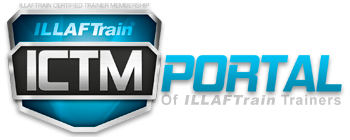Cutting-edge methods in training
Course id: 1009
Duration: 5 Day/ 5 H per day
introduction
Day after day,
Prerequisites
The participant in this Course does not need to have a certain specialization.Audience
This course is designed for both new and professional
Objectives
The Trainee will become able to:
Know the Nine Events of Instruction
Know and Build up John Keller’s ARCS Model & McClelland's Theory
Discover the Kolb learning style inventory (The Cycle of Learning)
Know Jean Piaget, J. P. Guilford, John Dewey
Know the development and the explanation of bloom's taxonomy
Use alternative psychomotor domain taxonomy versions
Content
First Day: Gagne
· Nine Events of Instruction
1. Gain attention
2. Inform learners of objectives
3. Stimulate recall of prior learning
4. Present the content
5. Provide "learning guidance
6. Elicit performance (practice
7. Provide feedback
8. Assess performance
9. Enhance retention and transfer to the job
· John Keller’s ARCS Model
o Attention
o Relevance
o Confidence
o Satisfaction
· McClelland's Theory
o Achievement
o Affiliation
o Power
Second Day: learning styles
o The Kolb learning style inventory
o The Cycle of Learning
o Interpreting your learning style
o Jean Piaget, J. P. Guilford, John Dewey
o Basic learning styles
o Applying What You Know About Your Learning Style
o For further exploring
Third Day: Bloom’s Taxonomy
- Introduction
o development of bloom's taxonomy
o explanation of bloom's taxonomy
o bloom's taxonomy definitions
- bloom's taxonomy learning domains - detailed structures
1. bloom's taxonomy - cognitive domain
cognitive domain - order ranking of 'synthesis' and 'evaluation'
2. bloom's taxonomy - affective domain
3. bloom's taxonomy - psychomotor domain
dave's psychomotor domain taxonomy
- alternative psychomotor domain taxonomy versions
- Structure of the Observed Learning Outcome
Trainers
 |
|
 |
|

